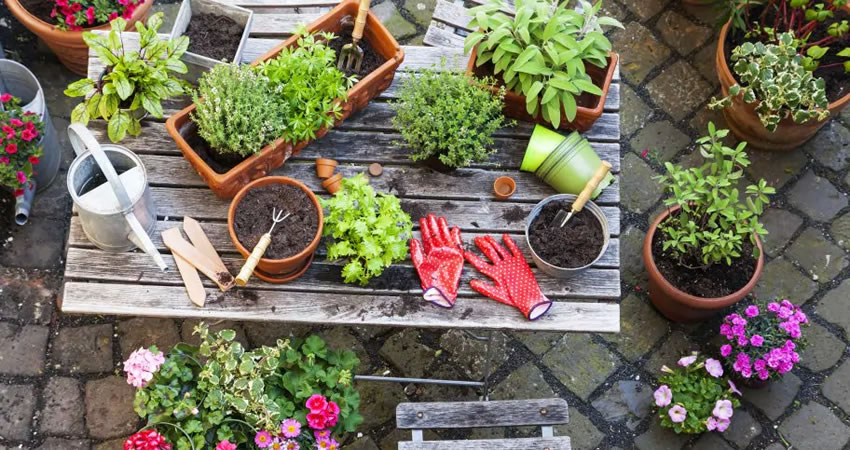With the holidays behind us, many people are ready to settle down and enjoy these cold, slow days of winter without the craziness of Christmas. When you find the warm-weather itch starting to grow, why not take that time to begin thinking about your summer garden?
There are lots of things you can start planning and preparing in the early months of the year to assure a successful and stress-free start to your gardening–even if you’re a beginner!
Plant Indoors
If you have a sunny window, you can begin planting and growing herbs and vegetables, even in the dead of winter! Tarragon, thyme, chives, rosemary, parsley, oregano, basil, and sage are all herbs that do well in containers within the house. Here’s a helpful article to get you started on growing those.
You can also grow vegetables within the house during the winter months. Arugula, bell and hot peppers, carrots, eggplant, kale, lettuce, mushrooms, potatoes, radishes, spinach, swiss chard, and tomatoes can all do well in a sunny spot, and will provide you with fresh, homegrown produce all winter long!
Another, more involved option, for winter produce is a cold frame box, which is just a bottomless box with windows that face the sky. The sunlight will keep the plants within growing, and the box protects them from the elements.
Begin Composting
Composting may not sound like everyone’s cup of tea, but it is an easy step that can keep you from wasting real food and will provide nutrient-rich soil for your summer garden. Any scraps and bits of raw fruits or vegetables that you don’t use or eat (including those veggies that got old in the fridge!) can be thrown into the bin. Smaller pieces of food will compost faster, so consider that when placing pieces in the compost.
A stainless steel can or bucket with a lid is the best composting spot, because it will last a long time and won’t let smells escape like plastic will. Chances are you will need to keep this bin somewhere inside until the weather gets warm enough.
Earthworms can be a helpful tool in composting–check out “vermicomposting” on the internet to read more about these helpful creatures!
Test Your Soil
January or February is a great time to test your soil after you’ve given it a chance to rest from the previous summer. A simple soil pH meter from a local store or online can give you a good idea in what your soil will need added to it in the coming months.
Do Some Reading
Instead of saving all of the research for spring and summer, spend some hours doing some reading about ways to improve your methods, plants to include in your garden, and ways to save money while maximizing your harvest. Here are some well-reviewed books that can get you started on your brainstorming!
It’s great to use these slower months to prepare for summer, and that can include getting your indoor and outdoor spaces ready for the fun that warm weather brings. If the overflowing garage or guest room are needing some attention, now is as good of a time as ever to get started on decluttering. A self-storage unit is a perfect, affordable way to safely store the unused patio furniture, power tools, or boxes of keepsakes until you need them again. Give us at Self Assured Storage a call today so we can help you with your pre-spring cleaning!



